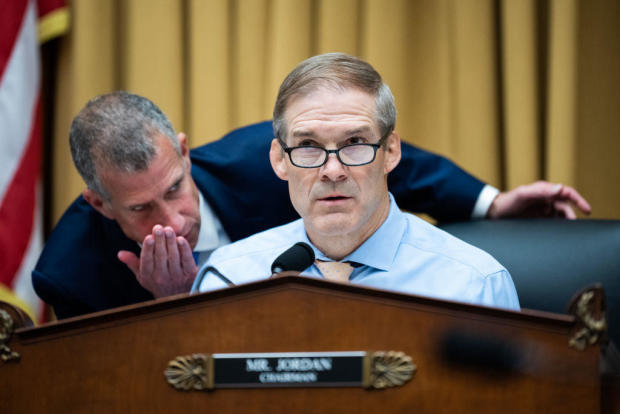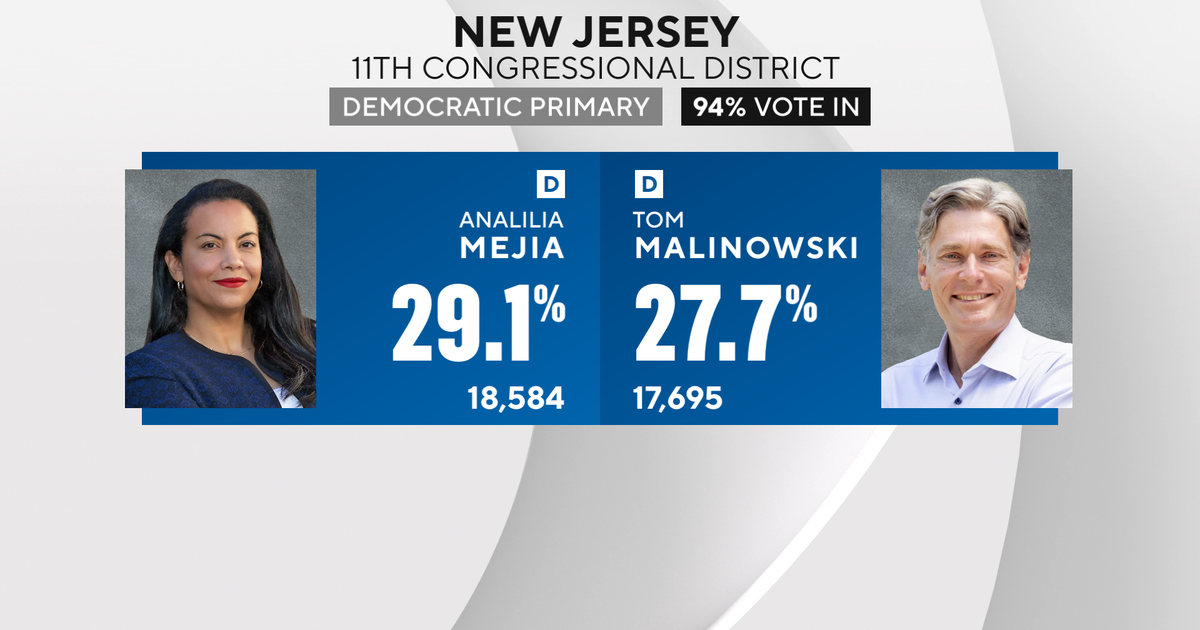Who could be the next speaker of the House? Republicans look for options after Kevin McCarthy's ouster
Washington — The historic removal of Rep. Kevin McCarthy from his position as House speaker sets up another election to fill the now-vacant seat atop the GOP-controlled lower chamber.
Patrick McHenry, who now temporarily wields the gavel as speaker pro tempore, announced during a meeting with fellow GOP lawmakers on Tuesday that the House Republican conference will hold a candidates' forum and try to elect a new speaker next week. The House stands in recess to allow the Republican conference and Democratic caucus to "meet and discuss the path forward," McHenry announced.
While it's unclear if a candidate can garner enough support from the fractured Republican conference to claim the gavel, some names have emerged as the possible successor to McCarthy, who said he will not run again. The full House votes on the speaker, and Democrats in the minority will almost certainly oppose any Republican candidate unanimously, meaning it will likely be up to the Republicans to find consensus on their own.
The next speaker of the House will face a gauntlet of challenges, starting with the legislative calendar and divisions in the GOP conference itself. The clock is ticking on the extension of government funding that lawmakers approved before McCarthy's ouster, with a new deadline of Nov. 17. Approving more aid for Ukraine has also become a divisive issue among the GOP, with most Republicans in the House opposing a new round of aid in the latest vote and Senate Republican leaders supporting continued assistance.
Two candidates have already thrown their hats into the ring as of Wednesday afternoon. Here are the leading GOP lawmakers who could mount a bid for the speakership:
Steve Scalise
As the majority leader, Scalise is currently the second-ranking Republican in the House. He announced his candidacy for the speaker's office Wednesday afternoon, saying he has "a proven track record of bringing together the diverse array of viewpoints within our Conference to build consensus where others thought it impossible."
If he wins the gavel, it would set off a reshuffling of the House GOP leadership ranks, since the position of majority leader would be vacant.
Scalise was elected to Congress in 2008 and represents Louisiana's 1st Congressional District. He has risen through the ranks of Republican leadership, serving as majority and minority whip before he was tapped by his colleagues for the No. 2 position for the 118th Congress.
Looming over a potential run for the speaker, though, is Scalise's diagnosis with multiple myeloma, a type of blood cancer. The majority leader announced the diagnosis in August and said it is "very treatable." He is expected to undergo treatment for "several months."
Scalise almost died in 2017 when he was shot by a gunman during an early morning softball practice in northern Virginia with other Republican members of Congress. He spent nearly four months in the hospital.
"God already gave me another chance at life," he wrote in a letter to colleagues announcing his bid for speaker. "I believe we were all put here for a purpose. This next chapter won't be easy, but I know what it takes to fight and I am prepared for the battles that lie ahead. I humbly ask you for your support on this mission to be your Speaker of the House."
Scalise appears to have earned the endorsement of at least one member of GOP leadership. Majority Whip Tom Emmer told reporters Tuesday that Scalise "would be a great speaker." Emmer would be in line to run for majority leader if Scalise ascends to the speaker's office.
In response, Scalise said he hasn't made any formal announcement about his future within the GOP conference and, when asked if he's physically up to the job of speaker, replied, "I feel great."
Rep. Matt Gaetz, the Florida Republican who unilaterally forced the vote to remove McCarthy, also indicated to reporters earlier this week that Scalise could be a good candidate to fill the vacant speaker seat.
"I think very highly of Steve Scalise. I would vote for Steve Scalise," he said after filing his motion to vacate. "I would probably vote for at least 100 Republicans in our caucus and maybe 100 other Americans out there who wouldn't necessarily need to be a member of the body to be considered for the speakership."
Gaetz said he wouldn't "pass over" Scalise because of his blood cancer diagnosis and ongoing treatment.
Scalise voted in favor of a relatively modest aid package worth $300 million for aid to Ukraine last week, one of 101 Republicans who supported it. The White House and members of both parties in the Senate want billions of dollars in additional aid to Kyiv, and the issue has become a sticking point in larger spending talks, teeing up an early test for whomever becomes the new speaker.
Jim Jordan
Jordan serves as the chairman of the House Judiciary Committee and Weaponization of the Federal Government Select Subcommittee, which was created after Republicans took control of the House in January.
He told reporters at the Capitol on Wednesday that he is running for the top House job.
"I've had a lot of people reach out to us, asking me to do it, because I think we can. We'll see if that happens, but I think I can," he said.
Jordan asked his Republican colleagues to support his candidacy for speaker in a letter Wednesday and touted his legislative work on immigration and oversight of the Biden administration.
"We are at a critical crossroad in our nation's history. Now is the time for our Republican conference to come together to keep our promises to Americans. The problems we face are challenging, but they are not insurmountable," he wrote. "We can focus on the changes that improve the country and unite us in offering real solutions. But no matter what we do, we must do it together as a conference."
Jordan said Wednesday that he would oppose additional aid to Ukraine, and voted against the supplemental $300 million package last week.
"The most pressing issue on Americans' mind is not Ukraine. It's the border situation and it is crime on the streets and everybody knows that. So let's address those," he said.
Elected to represent Ohio's 4th Congressional District in 2006, Jordan was a founding member and leader of the House Freedom Caucus, a group of conservative lawmakers. The Ohio Republican in the past served as a thorn in the side of GOP leadership — former House Speaker John Boehner called Jordan a "legislative terrorist."
Jordan mounted a bid for House speaker in 2018 after then-Speaker Paul Ryan said he wouldn't run for another term, but was not expected to garner support from a majority of Republicans. Democrats ended up winning control of the House after the 2018 midterm elections, and McCarthy was elected minority leader by the GOP conference.
Though Jordan and fellow conservatives often sparred with Boehner, Jordan became an ally of McCarthy's. He spoke in support of McCarthy's candidacy for speaker in January and defended the embattled California Republican on Tuesday before the vote to remove him.
Jordan emerged as a possible alternative candidate for speaker at the start of the new Congress in January, garnering a handful of votes from conservative lawmakers who opposed McCarthy during more than a dozen rounds of voting.
Kevin Hern
Hern, who was elected to represent Oklahoma's 1st Congressional District in 2018, leads the 176-member Republican Study Committee, which bills itself as the conservative caucus of the House GOP.
As with Jordan, Hern garnered backing from several Republicans opposed to McCarthy during the speaker elections in January, even though he cast his vote for his colleague from California.
A spokesperson for Hern told CBS News he is "seriously considering a run," but hasn't made a decision yet. Gaetz on Tuesday listed Hern among Republicans who he could support for speaker, alongside Scalise, Emmer, Texas Rep. Jodey Arrington, and Mike Johnson of Louisiana.
Hern was one of the 117 Republicans to vote against more Ukraine aid last week.
Ellis Kim contributed reporting.






